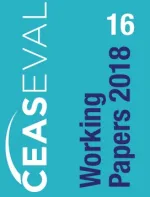Who is responsible, for what and to whom? Patterns of politicisation on refugees and the European solidarity crisis

CEASEVAL Working papers No.16
This report addresses the relationship between public opinion, political discourse and policy responses in the context of the so-called refugee crisis. In doing so, it speaks to the literature concerned with the saliency, polarisation and politicisation of migration, but shifting the focus from the politicisation of immigration to the politicisation of responsibility. Rather than about how migration is covered, perceived and responded (in terms of political discourse and policies), the questions at stake regard the meaning of responsibility, namely who is responsible, for what and to whom, both at the national and European levels. To answer such questions the report draws upon CEASEVAL WP5’s analyses and country reports, trying to identify patterns of politicisation across eight country-cases. Ten keyfindings emerge from the analysis: The discussion on responsibility vis-à-vis refugees in Europe has become an issue of politicisation across countries (I), and it has generally turned towards more restrictive positions (II). The very meaning of responsibility differs in each context, depending on country-specific issues related to immigration (III). Whom responsibility is due in the first place tends to be framed within a broader discussion about the imagined community of people deserving rights, recognition, and responses (IV) and - across countries and parties – it varies from narrow conceptions centred on the national interest to a broader one focused on refugee protection (V). Despite certain variation, three main groups of entities are hold responsible across countries: European Institutions, Member States and the national government (VI). Politicisation (i.e. high salience and high polarization) is observed in most of the countries analysed (VII) and in both the political arena and the media sphere (VIII). Hegemonisation (i.e. high salience and low polarization), emerge as novel and interesting pattern in different countries (e.g. Hungary and Bulgaria), calling for further research and theoretical speculation (XIX). Finally, significant cross-national variation is observed regarding the viable solution to the crisis of solidarity in the EU, where some countries (i.e. Greece, Italy, Spain and Germany) call for “more Europe”, while others (i.e. Finland, Hungary and Bulgaria) ask for “less Europe” (X).
Keywords: Refugee, Solidarity, Relocation quota, Politicization, EU, Political discourse, Public opinion, Media